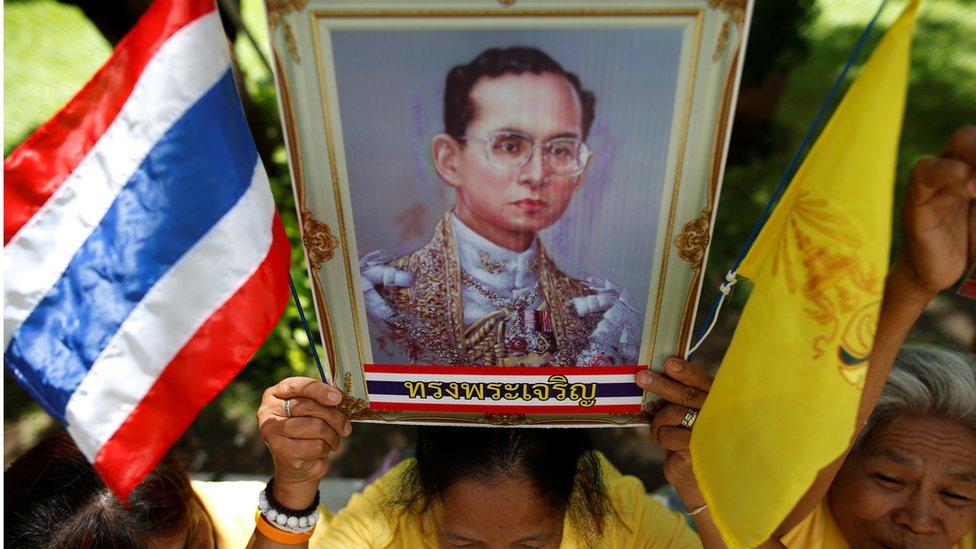Profile: Thai regent Prem Tinsulanonda
- Published
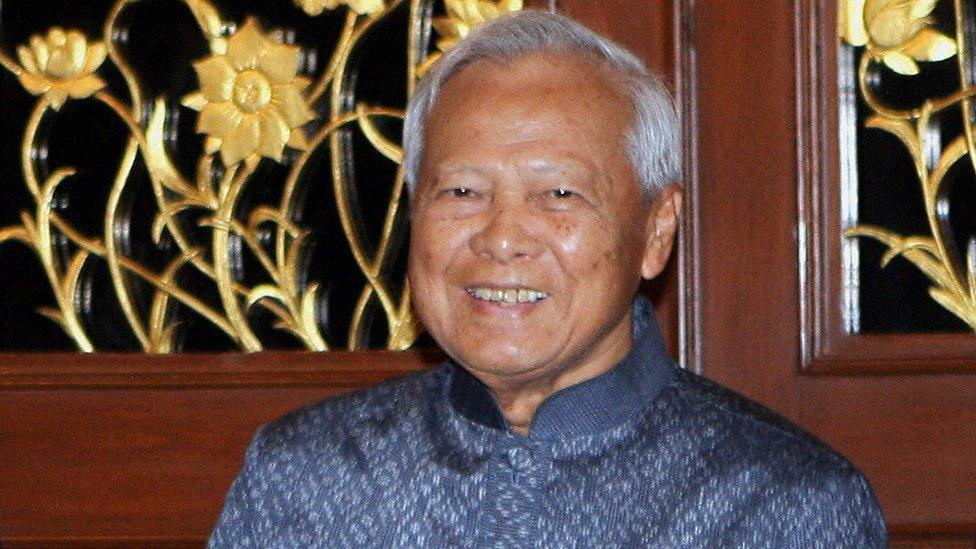
Prem Tinsulanonda had a close professional relationship with the late King Bhumibol Adulyadej
The man who now takes the place of the late King Bhumibol Adulyadej is one of the most experienced, canny and influential political figures in modern Thai history.
Prem Tinsulanonda, a native of southern Thailand, was also the closest confidant of the king during the last four decades of his reign.
Born in Songkhla in 1920, he began his military career in 1941, serving in the brief war with France over Cambodian territory. He later received training in the US in the 1950s and 1960s.
From the late 1950s, at a time when Thailand was ruled by a series of military governments, General Prem had parallel military and political careers. He took his first political role in 1959, as part of a committee drafting one of Thailand's many constitutions.
He later served as a senator, and eventually as a deputy interior minister in 1977. He rose quickly through the military ranks, but perhaps more significantly, served as a royal aide-de-camp in the palace in 1968 and again in 1975, where he would have come to the attention of King Bhumibol.
Royal support was probably instrumental in General Prem's elevation to the most powerful military post of army commander in 1978, which he gained over other senior candidates. Palace backing was also instrumental in engineering General Prem into the prime minister's job in 1980, at a time when Thailand was still under military rule.
He was to govern for eight years, an unprecedented tenure, and presided over a period when Thailand began to experience increasing stability and prosperity.
The key to this stability was the unusually close partnership between the king and his prime minister. Known for his self-discipline and discretion, General Prem appealed to a monarch who disliked the messy wheeling and dealing of Thailand's notoriously febrile politics.
King Bhumibol's personal support helped General Prem survive two coups by dissatisfied military factions in 1981 and 1985. In return the prime minister promoted the monarchy as the indispensable source of legitimacy in Thailand. It helped that under General Prem the communist insurgency dwindled, regional threats to Thailand eased after relations with China were normalised and the country's economy began a surge in growth.
When General Prem stepped down in 1988, he was immediately elevated to the 19-member Privy Council, the king's official advisors, which he has dominated ever since.
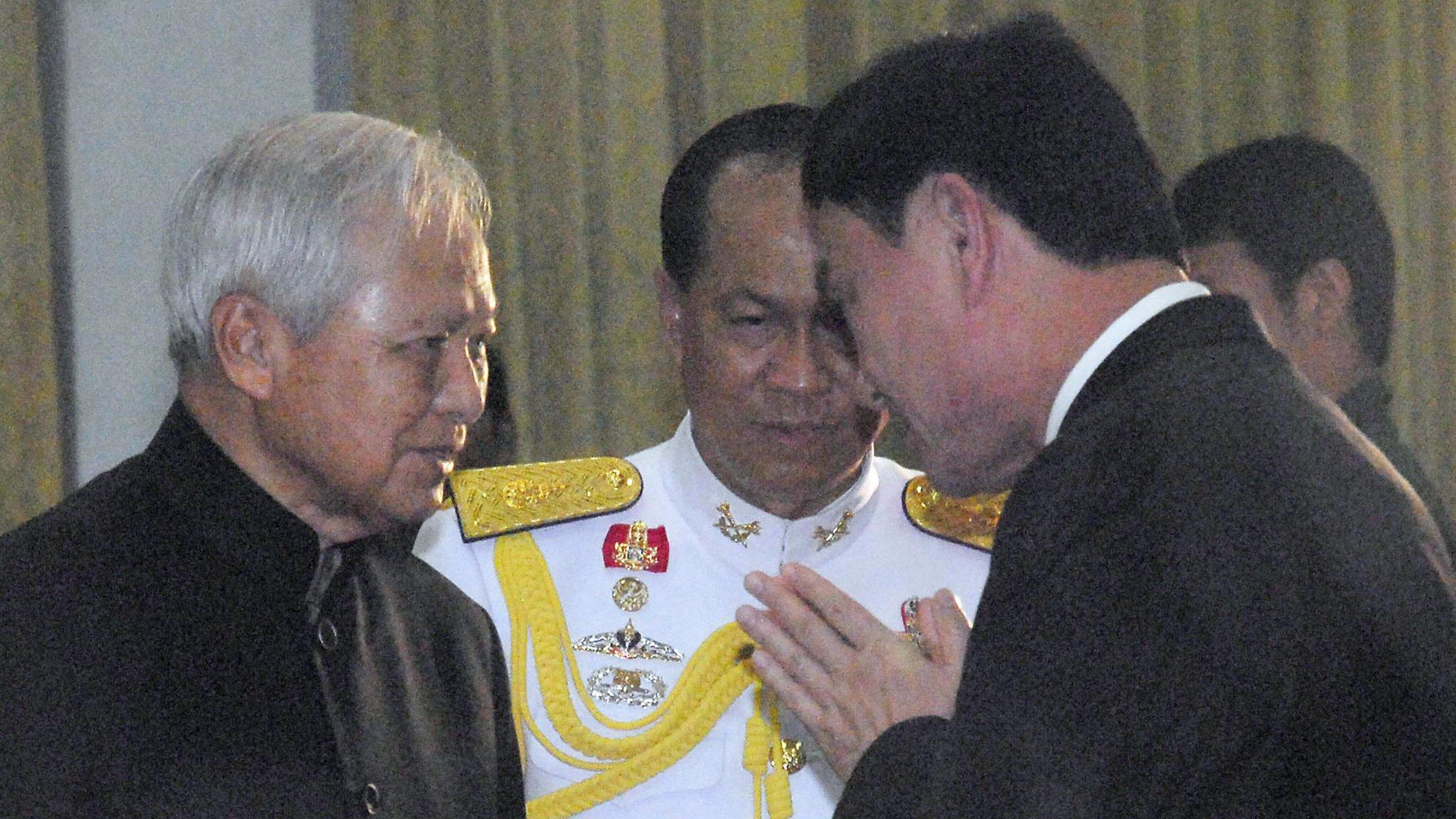
General Prem (left) is pictured receiving a traditional greeting from Thailand's former Prime Minister Thaksin Shinawatra (right) in 2008
His long military career gave him unparalleled influence within the armed forces and he also proved an astute network-builder in elite Thai business circles. Until the election of populist prime minster Thaksin Shinawatra in 2001, General Prem is believed to have exercised decisive influence over important military promotions.
When Mr Thaksin was deposed in a royalist military coup in September 2006, his supporters blamed General Prem for organising it. Two months before, the Privy Council chairman had given a speech to army officers, comparing Thailand to a stable of horses, in which, he implied, the prime minister was only the jockey, and the king the owner.
General Prem has remained active until today, at the age of 96, frequently giving speeches warning of the dangers of corruption to Thai society. He was assumed to have lost some influence after the coup in 2014, which was led by officers from the queen's guard faction of the armed forces. But speculation has continued over the extent of his influence over current events.
He is also known to have doubts over Crown Prince Vajiralongkorn's ability to perform the role of king, which makes his position now, as regent, politically significant.
General Prem remains a controversial figure in Thailand. Some credit him with consolidating the military-palace partnership that has underpinned past periods of stability, and with helping elevate the extraordinary stature of King Bhumibol. Others argue that his endless meddling has contributed to the political instability of the past decade.
- Published15 October 2016
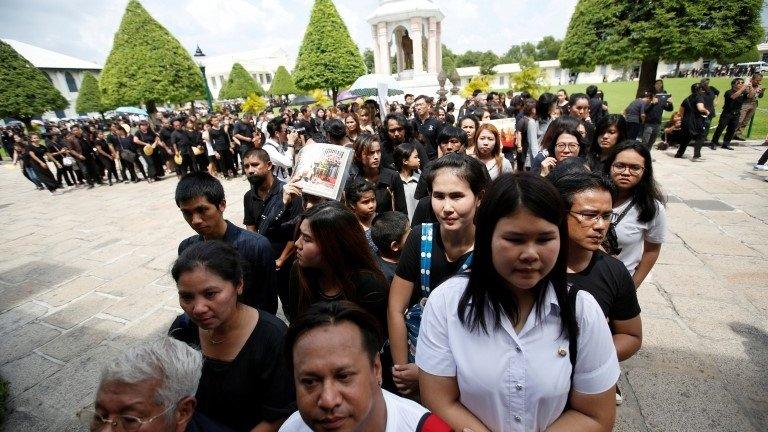
- Published13 October 2016
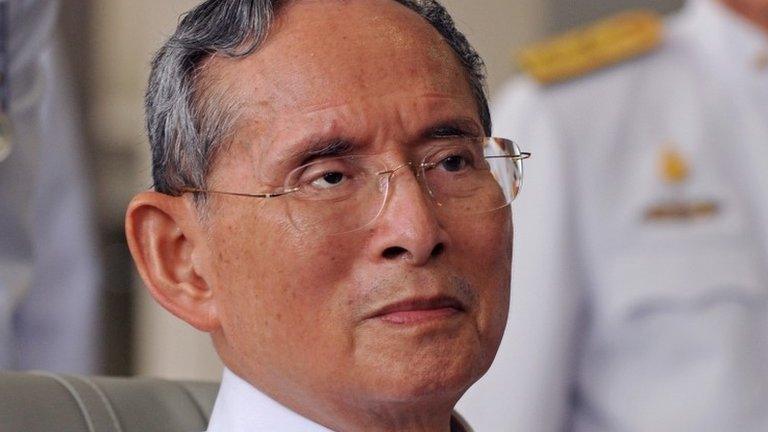
- Published13 October 2016
